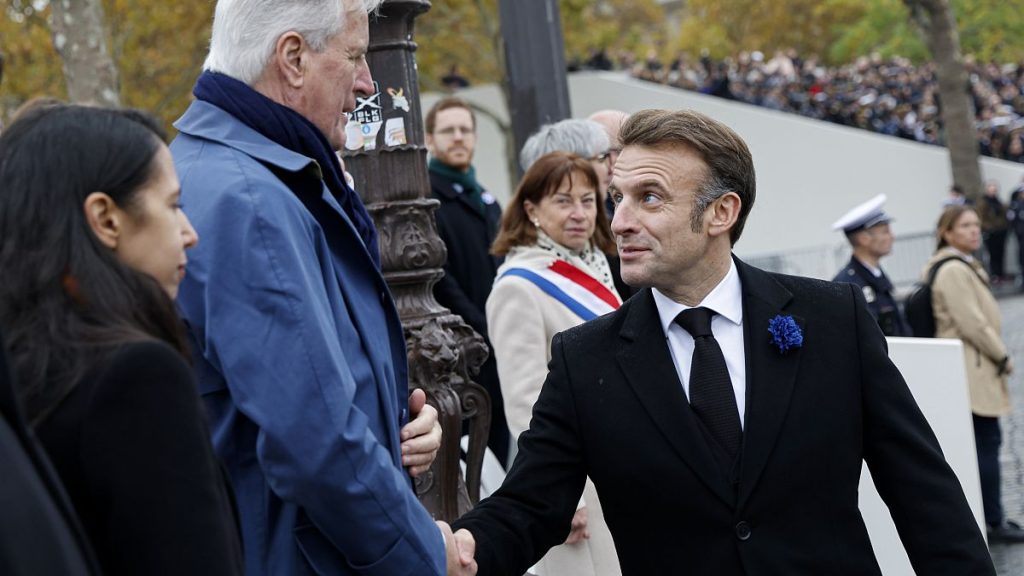The final meeting of French Prime Minister Michel Barnier’s cabinet marked the end of his tenure and ushered in a period of transition for the French government. The central focus of the meeting was the introduction of a “special bill” designed to ensure the continued functioning of the government into 2025. This bill addresses crucial budgetary decisions for 2024, essentially acting as a bridge mechanism until the formal finance law for the year is passed. Its primary purpose is to prevent a government “shutdown” by authorizing the continued collection of existing taxes and duties, thereby maintaining essential services and operations until the new budget is in place. The bill’s urgency is reflected in the expedited timeline for its passage, with debates scheduled in the National Assembly on Monday and the Senate on Wednesday. This legislative action underscores the importance of maintaining governmental stability during periods of leadership transition.
The impending appointment of a new prime minister looms large following Barnier’s resignation. While President Emmanuel Macron had previously indicated a Thursday deadline for the announcement, the government spokesperson, Maud Bregeon, declined to confirm the specific timeframe. This ambiguity surrounding the appointment process underscores the delicate political considerations involved in selecting a successor. Bregeon emphasized the President’s role as guarantor of the institutions and his commitment to finding a stable solution, suggesting that the choice of the next prime minister is being carefully deliberated to ensure a smooth transition and maintain continuity in governance. The President’s focus on stability suggests a desire to avoid any disruption to the government’s agenda and its ongoing efforts to address the nation’s challenges.
Beyond domestic matters, the cabinet meeting also addressed the complex situation in Syria. Foreign Affairs Minister Jean-Noël Barrot highlighted the significant transformations occurring in the region and emphasized the need for a peaceful transition in Syria. This focus on peaceful transition reflects France’s concern about the ongoing instability and the potential for further conflict. Furthermore, Barrot stressed the importance of mitigating the risk of extremism, recognizing the dangerous potential for extremist groups to exploit the volatile situation in Syria. This dual emphasis on promoting a peaceful transition while guarding against extremism underscores the delicate balance that France and the international community must strike in addressing the Syrian crisis.
The proposed “special bill” represents a crucial step in ensuring governmental continuity during the transition period. By authorizing the continued collection of taxes and duties, the bill provides the necessary financial framework for the government to operate until the 2025 budget is formally adopted. This interim measure prevents a disruptive “shutdown” and safeguards the provision of essential services to the French public. The bill’s swift passage through the National Assembly and Senate is essential to maintaining stability and avoiding any interruption in governmental functions.
The selection of a new prime minister is a pivotal moment for the French government. President Macron’s emphasis on stability suggests that he will seek a candidate who can effectively manage the transition and maintain continuity in policy and governance. The chosen successor will inherit the responsibility of navigating the complex political landscape and implementing the government’s agenda. The timing of the announcement and the ultimate choice of prime minister will have significant implications for the direction of French politics in the coming years.
The discussion of the Syrian situation underscores France’s ongoing concern about regional stability and the need for a peaceful resolution to the conflict. The emphasis on a peaceful transition reflects France’s commitment to supporting a diplomatic solution that respects the rights and aspirations of the Syrian people. The simultaneous focus on preventing the spread of extremism highlights the critical need to address the root causes of instability and prevent extremist groups from exploiting the situation to further their own agendas. France’s engagement in the Syrian issue reflects its role as a key player in international affairs and its commitment to promoting peace and security in the region.














